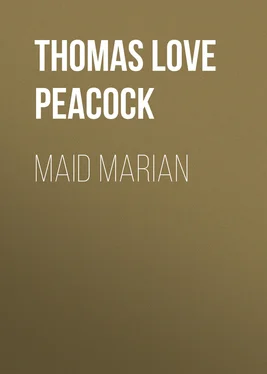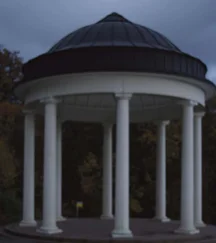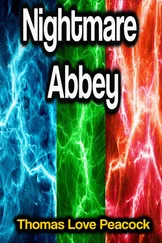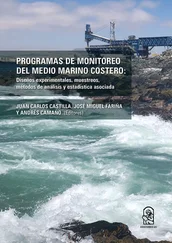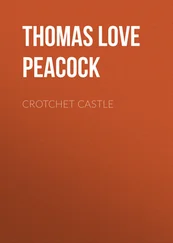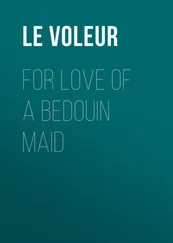Thomas Love Peacock - Maid Marian
Здесь есть возможность читать онлайн «Thomas Love Peacock - Maid Marian» — ознакомительный отрывок электронной книги совершенно бесплатно, а после прочтения отрывка купить полную версию. В некоторых случаях можно слушать аудио, скачать через торрент в формате fb2 и присутствует краткое содержание. Жанр: foreign_antique, foreign_prose, Исторические приключения, Зарубежные любовные романы, Альтернативная история, на английском языке. Описание произведения, (предисловие) а так же отзывы посетителей доступны на портале библиотеки ЛибКат.
- Название:Maid Marian
- Автор:
- Жанр:
- Год:неизвестен
- ISBN:нет данных
- Рейтинг книги:5 / 5. Голосов: 1
-
Избранное:Добавить в избранное
- Отзывы:
-
Ваша оценка:
- 100
- 1
- 2
- 3
- 4
- 5
Maid Marian: краткое содержание, описание и аннотация
Предлагаем к чтению аннотацию, описание, краткое содержание или предисловие (зависит от того, что написал сам автор книги «Maid Marian»). Если вы не нашли необходимую информацию о книге — напишите в комментариях, мы постараемся отыскать её.
Maid Marian — читать онлайн ознакомительный отрывок
Ниже представлен текст книги, разбитый по страницам. Система сохранения места последней прочитанной страницы, позволяет с удобством читать онлайн бесплатно книгу «Maid Marian», без необходимости каждый раз заново искать на чём Вы остановились. Поставьте закладку, и сможете в любой момент перейти на страницу, на которой закончили чтение.
Интервал:
Закладка:
“How do I know that?” said the baron. “What surety have I of that?”
“Here is the friar,” said Matilda. “He will be surety.”
“Not he,” said the baron: “he will undertake nothing but where the devil is a party concerned.”
“Yes, I will,” said the friar: “I will undertake any thing for the lady Matilda.”
“No matter for that,” said the baron: “she shall not go hunting to day.”
“Why, father,” said Matilda, “if you coop me up here in this odious castle, I shall pine and die like a lonely swan on a pool.
“No,” said the baron, “the lonely swan does not die on the pool. If there be a river at hand, she flies to the river, and finds her a mate; and so shall not you.”
“But,” said Matilda, “you may send with me any, or as many, of your grooms as you will.”
“My grooms,” said the baron, “are all false knaves. There is not a rascal among them but loves you better than me. Villains that I feed and clothe.”
“Surely,” said Matilda, “it is not villany to love me: if it be, I should be sorry my father were an honest man.” The baron relaxed his muscles into a smile. “Or my lover either,” added Matilda. The baron looked grim again.
“For your lover,” said the baron, “you may give God thanks of him. He is as arrant a knave as ever poached.”
“What, for hunting the king’s deer?” said Matilda. “Have I not heard you rail at the forest laws by the hour?”
“Did you ever hear me,” said the baron, “rail myself out of house and land? If I had done that, then were I a knave.”
“My lover,” said Matilda, “is a brave man, and a true man, and a generous man, and a young man, and a handsome man; aye, and an honest man too.”
“How can he be an honest man,” said the baron, “when he has neither house nor land, which are the better part of a man?”
“They are but the husk of a man,” said Matilda, “the worthless coat of the chesnut: the man himself is the kernel.”
“The man is the grape stone,” said the baron, “and the pulp of the melon. The house and land are the true substantial fruit, and all that give him savour and value.”
“He will never want house or land,” said Matilda, “while the meeting boughs weave a green roof in the wood, and the free range of the hart marks out the bounds of the forest.”
“Vert and venison! vert and venison!” exclaimed the baron. “Treason and flat rebellion. Confound your smiling face! what makes you look so good-humoured? What! you think I can’t look at you, and be in a passion? You think so, do you? We shall see. Have you no fear in talking thus, when here is the king’s liegeman come to take us all into custody, and confiscate our goods and chattels?”
“Nay, Lord Fitzwater,” said Sir Ralph, “you wrong me in your report. My visit is one of courtesy and excuse, not of menace and authority.”
“There it is,” said the baron: “every one takes a pleasure in contradicting me. Here is this courteous knight, who has not opened his mouth three times since he has been in my house except to take in provision, cuts me short in my story with a flat denial.”
“Oh! I cry you mercy, sir knight,” said Matilda; “I did not mark you before. I am your debtor for no slight favour, and so is my liege lord.”
“Her liege lord!” exclaimed the baron, taking large strides across the chamber.
“Pardon me, gentle lady,” said Sir Ralph. “Had I known you before yesterday, I would have cut off my right hand ere it should have been raised to do you displeasure.
“Oh sir,” said Matilda, “a good man may be forced on an ill office: but I can distinguish the man from his duty.” She presented to him her hand, which he kissed respectfully, and simultaneously with the contact thirty-two invisible arrows plunged at once into his heart, one from every point of the compass of his pericardia.
“Well, father,” added Matilda, “I must go to the woods.”
“Must you?” said the baron; “I say you must not.”
“But I am going,” said Matilda
“But I will have up the drawbridge,” said the baron.
“But I will swim the moat,” said Matilda.
“But I will secure the gates,” said the baron.
“But I will leap from the battlement,” said Matilda.
“But I will lock you in an upper chamber,” said the baron.
“But I will shred the tapestry,” said Matilda, “and let myself down.”
“But I will lock you in a turret,” said the baron, “where you shall only see light through a loophole.”
“But through that loophole,” said Matilda, “will I take my flight, like a young eagle from its eerie; and, father, while I go out freely, I will return willingly: but if once I slip out through a loop-hole–” She paused a moment, and then added, singing,—
The love that follows fain
Will never its faith betray:
But the faith that is held in a chain
Will never be found again,
If a single link give way.
The melody acted irresistibly on the harmonious propensities of the friar, who accordingly sang in his turn,—
For hark! hark! hark!
The dog doth bark,
That watches the wild deer’s lair.
The hunter awakes at the peep of the dawn,
But the lair it is empty, the deer it is gone,
And the hunter knows not where.
Matilda and the friar then sang together,—
Then follow, oh follow! the hounds do cry:
The red sun flames in the eastern sky:
The stag bounds over the hollow.
He that lingers in spirit, or loiters in hall,
Shall see us no more till the evening fall,
And no voice but the echo shall answer his call:
Then follow, oh follow, follow:
Follow, oh follow, follow!
During the process of this harmony, the baron’s eyes wandered from his daughter to the friar, and from the friar to his daughter again, with an alternate expression of anger differently modified: when he looked on the friar, it was anger without qualification; when he looked on his daughter it was still anger, but tempered by an expression of involuntary admiration and pleasure. These rapid fluctuations of the baron’s physiognomy—the habitual, reckless, resolute merriment in the jovial face of the friar,—and the cheerful, elastic spirits that played on the lips and sparkled in the eyes of Matilda,—would have presented a very amusing combination to Sir Ralph, if one of the three images in the group had not absorbed his total attention with feelings of intense delight very nearly allied to pain. The baron’s wrath was somewhat counteracted by the reflection that his daughter’s good spirits seemed to show that they would naturally rise triumphant over all disappointments; and he had had sufficient experience of her humour to know that she might sometimes be led, but never could be driven. Then, too, he was always delighted to hear her sing, though he was not at all pleased in this instance with the subject of her song. Still he would have endured the subject for the sake of the melody of the treble, but his mind was not sufficiently attuned to unison to relish the harmony of the bass. The friar’s accompaniment put him out of all patience, and—“So,” he exclaimed, “this is the way, you teach my daughter to renounce the devil, is it? A hunting friar, truly! Who ever heard before of a hunting friar? A profane, roaring, bawling, bumper-bibbing, neck-breaking, catch-singing friar?”
“Under favour, bold baron,” said the friar; but the friar was warm with canary, and in his singing vein; and he could not go on in plain unmusical prose. He therefore sang in a new tune,—
Though I be now a grey, grey friar,
Yet I was once a hale young knight:
The cry of my dogs was the only choir
In which my spirit did take delight.
Little I recked of matin bell,
But drowned its toll with my clanging horn:
And the only beads I loved to tell
Were the beads of dew on the spangled thorn.
Интервал:
Закладка:
Похожие книги на «Maid Marian»
Представляем Вашему вниманию похожие книги на «Maid Marian» списком для выбора. Мы отобрали схожую по названию и смыслу литературу в надежде предоставить читателям больше вариантов отыскать новые, интересные, ещё непрочитанные произведения.
Обсуждение, отзывы о книге «Maid Marian» и просто собственные мнения читателей. Оставьте ваши комментарии, напишите, что Вы думаете о произведении, его смысле или главных героях. Укажите что конкретно понравилось, а что нет, и почему Вы так считаете.
